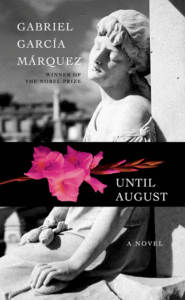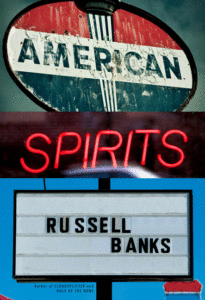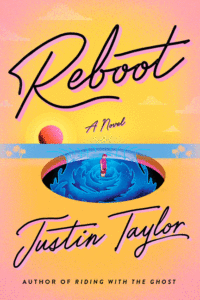Our treasure trove of terrific reviews this week includes Ariel Dorfman on Gabriel García Márquez’s Until August, Casey Cep on Russell Banks’ American Spirits, Joshua Ferris on Justin Taylor’s Reboot, Mia Levitin on Eliza Barry Callahan’s The Hearing Test, and the late Helen Vendler on Herman Melville: Complete Poems.
Brought to you by Book Marks, Lit Hub’s home for book reviews.
*
“Many years later, as I faced the deadline for writing this review, I was to remember that distant afternoon when Gabriel García Márquez showed me the Spanish manuscript of Chronicle of a Death Foretold and then gently refused to let me read the novel until its forthcoming publication … What seems noteworthy today, as one reads his posthumous novel Until August, is that despite his reiterated reverence for the female sex, he never—until now, that is—published a long work of fiction in which a woman was the uncontested protagonist. Exceptional, fully developed female characters abound in his work: the multifarious mothers and grandmothers, sisters and daughters and lovers of the Buendía family in One Hundred Years of Solitude, as well as scores of others in book after book.
And yet, endowed though their mostly tragic lives may be with dignity and agency, they live in a world forged by machos, basically patriarchs, large or small, who determine priorities through their stubborn search for power or their unrelenting lust. The women are there to fix the messes these men leave behind and to service their male nostalgia and desires. This is the world from which the protagonist of Until August, forty-six-year-old Ana Magdalena Bach, strives to escape … It is heartening that even as his memory began to fade, García Márquez risked setting out for new horizons. I can only hope that he would not have wanted his sons to condemn Ana Magdalena Bach to the flames of oblivion no matter how imperfectly she might have been wrought. Surely he would have been dismayed at becoming, from beyond death, an accomplice to the erasure of that struggle of hers to defeat that very death.”
–Ariel Dorfman on Gabriel García Márquez’s Until August (The New York Review of Books)
“American Spirits might easily be misread as an effort to explain how the past two Presidential elections turned out, or to predict the outcome of the next one. But the book isn’t an attempt to transform diner journalism into literature. As he did in the novels Continental Drift and The Reserve, Banks is working here in one of the great points of view in American literature: neighborly omniscience. Like the unnamed narrator who finds Hester Prynne’s scarlet letter in the Salem Custom House and then sets about telling her tale, Banks’s narrators are anonymous busybodies and town gossips, nosy neighbors or observers once removed from the action. They try to account for the recent and ancient past, arraying barstool stories, Facebook posts, rumor-mill secrets, and Nextdoor-style scandals alongside folklore and myth, making sense of their lives in ways that illuminate larger aspects of our communal existence, not only class politics and political extremism but all the tumult that characterizes the past eight-going-on-eighty years of American history …
That cycle of revision, recrimination, and attempted absolution animates American Spirits. All three of its stories draw on recent real-world events, things you may have read about in the news, transposed from their actual Zip Codes to the fictional town of Sam Dent, a place close to Ausable Chasm, in upstate New York, where Banks spent much of his later life and which featured in some of his previous books. They are also all transformed into morality plays of sorts—although, unlike in the Massachusetts Bay Colony of Nathaniel Hawthorne, the morals in Trump’s America are inscrutable. Readers find ourselves, as we so often do in real life, unsure of what anyone should have done or could possibly do now … If the residents of Sam Dent were merely stereotypes of a political movement, then American Spirits wouldn’t have the impressive heft that it does. Instead, they are, to a person, indelible characters, with lives full of meticulously observed details.”
–Casey Cep on Russell Banks’ American Spirits (The New Yorker)
“There are two kinds of novels about American life in the digital age: panoramas and selfies. The former are surveys of a wired world’s structures and networks, like Dave Eggers’s fictionalization of Big Tech in The Circle and Jennifer Egan’s interconnected New York in The Candy House. The latter, like Patricia Lockwood’s No One Is Talking About This and Lauren Oyler’s Fake Accounts, are intimate portraits of the experience of being very online. Reboot, Justin Taylor’s second novel (after a fine memoir about his father), splits the screen in an ambitious attempt to accommodate both, while also considering gamers, trolls, stans, chuds, the mania of online fandom and that beloved, increasingly baroque, bloody American pastime, the conspiracy theory … the plot is no more the point of Taylor’s book than were the exploding vampires of Sunnydale or the beach-town brawls of Orange County. The point, as always, is to get the gang back together …
Reboot is an anxious book. Crader’s visits to both coasts prompt misgivings about open-carry laws, boorish (male) behavior, status anxiety, parental failure and fanaticisms of all stripes. Taylor’s gently comic tone and kinetic prose make this hard-going travel easier, as do his many clever reinventions … A novelist chases reality. If our current one eludes easy capture, points are rewarded for remaining competitive with an alternate. Taylor earns lots of points. His book is, in part, a performance of culture, a mirror America complete with its own highly imagined myths, yet one still rooted in the Second Great Awakening and the country’s earliest literature … the book seems caught between an honest reckoning with dread and an impulse to reassure. There will be blood, but it’s not as devastating as it deserves to be.”
–Joshua Ferris on Justin Taylor’s Reboot (The New York Times Book Review)
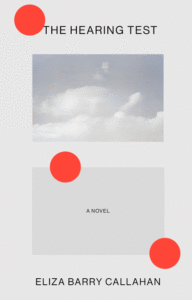
“‘Novels that leave out technology misrepresent life as badly as Victorians misrepresented life by leaving out sex,’ wrote Kurt Vonnegut in A Man Without a Country (2005). Callahan’s philosophical prose, reminiscent of Fleur Jaeggy and Clarice Lispector, exhibits a quality of attention increasingly rare in our screen-addled era. But despite an anachronistic tone, she naturally weaves technology into the story. Finding solitude preferable at home, the narrator plays tourist via Google Earth, exchanges text messages with a friend in Thessaloniki and has rather matter-of-fact phone sex …
The narrator takes a trip to LA for a clinical trial, staying with her film-maker ex and his new girlfriend, and attends the Venice Biennale with her mother. If the ancillary characters remain somewhat two-dimensional, this is perhaps a reflection of the narrator’s turning inwards: ‘Being in the presence of things made me more aware of the way I was experiencing their absence – everything existed in silhouette’ … There is no moral to the story in The Hearing Test: no lesson of courage in the face of adversity, or the cruelty, or fortune, of fate. As the narrator reflects on her score-keeping, ‘filled with the days, the doses, the decibels,’ she concludes: ‘if you think about something long enough, it will make sense even if you haven’t made any sense of it at all—you’ve just gotten used to it.’”
–Mia Levitin on Eliza Barry Callahan’s The Hearing Test (Times Literary Supplement)
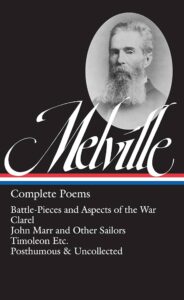
“Of our chief nineteenth-century poets—among them Whitman and Dickinson—Melville is the least taught, the least known, the least quoted. His poems have languished outside the canon of American classics, a disregard now repaired by the handsome reproduction, by the Library of America, of his Complete Poems … Those knowing Melville only from his novels and tales will be puzzled by the poems, not only because they embody nineteenth-century historical fact and intense religious dispute but also because they quarrel with our reduced idea of acceptable subjects for lyric verse. At full strength, Melville is a poet of dangerous social and political observation …
To be fair to him as a poet, he was also conducting for himself experiments in conveying real-life war in the stylized forms of lyric verse. Rhymes—yes or no? Tempo—the leisurely pentameter or quick anapests? A backward look at past events or a present-tense resurrection of their terrors? An objective speaker or a soldier-participant? And, centrally, in what language can patriotism speak in a country divided by ‘The Conflict of Convictions’ (as Melville titled one poem)? Or is patriotism impossible in ‘The fair, false, Circe light of cruel War’ (as he writes in ‘Running the Batteries’)? … But Melville was after bigger game than lyric euphony and narrative grace. Two things distinguish his best poems: an original way of beginning them, and his own frequent, if tacit, adoption of God’s omniscience—seeing all, judging much … Melville’s successes, when they occur, are moving precisely because one has to track, as in this example, the motions of a compressed intellectual, historical, and pictorial argument.”
–Helen Vendler on Herman Melville: Complete Poems (The New York Review of Books)


